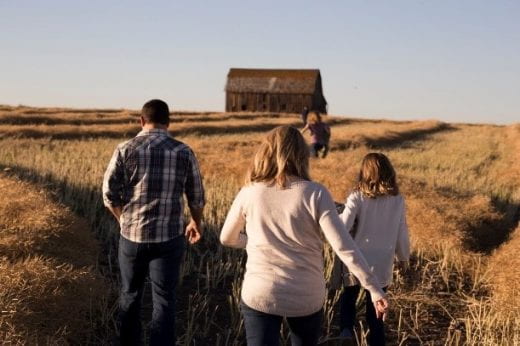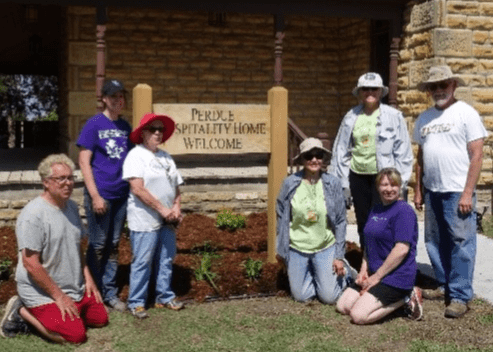 Nora Rhoades has been named the Post Rock District Director, effective December 15, 2019. She will also serve as the Youth Development Extension Agent overseeing a comprehensive positive youth development program for the District. You can reach Nora by contacting any Post Rock District Office or by emailing nrhoades@ksu.edu.
Nora Rhoades has been named the Post Rock District Director, effective December 15, 2019. She will also serve as the Youth Development Extension Agent overseeing a comprehensive positive youth development program for the District. You can reach Nora by contacting any Post Rock District Office or by emailing nrhoades@ksu.edu.
Nora has served our five counties as a Family and Youth Development Extension Agent since 2014. Prior to that appointment, she served as a Post Rock District 4-H Program Coordinator. Nora lives in northern Smith County with her husband, Wyatt, and their three sons, Ty, Rence and Eldon. Wyatt operates a hay farm and cattle operation.
Nora is thrilled to continue serving K-State Research and Extension’s Post Rock District through her administrative leadership and by extending her passion for developing tomorrow’s difference makers.
Follow Post Rock Extension on Facebook as we work to fill other professional positions in the Post Rock District.
By: Nora Rhoades
 Join us for learning the strategies for farm family success in the shark tank of “WHAT IF!” The event will feature nationally recognized speaker, Dr. Ron Hanson, University of Nebraska-Lincoln Harlan Agribusiness Professor Emeritus. The event is January 8, 2020 in Downs, KS beginning at 5:30PM. For complete details and to register visit
Join us for learning the strategies for farm family success in the shark tank of “WHAT IF!” The event will feature nationally recognized speaker, Dr. Ron Hanson, University of Nebraska-Lincoln Harlan Agribusiness Professor Emeritus. The event is January 8, 2020 in Downs, KS beginning at 5:30PM. For complete details and to register visit  The holidays may be over but January is a time to celebrate houseplants. Most houseplants are easy to care for and add so much life to a space. Having a plant in your office or home is a great way to bring some color indoors and cure your winter blues.
The holidays may be over but January is a time to celebrate houseplants. Most houseplants are easy to care for and add so much life to a space. Having a plant in your office or home is a great way to bring some color indoors and cure your winter blues. Playing cards
Playing cards If you start vegetable plants indoors, it is often helpful to list seeding dates on a calendar so that plants are ready for transplanting at the proper time. To do this, choose your transplant date and count back the number of weeks necessary to grow your own transplants. For example, cabbage, broccoli, and cauliflower are usually transplanted in late March to early April. It takes 8 weeks from seeding to transplant size. Plants should be seeded in early February.
If you start vegetable plants indoors, it is often helpful to list seeding dates on a calendar so that plants are ready for transplanting at the proper time. To do this, choose your transplant date and count back the number of weeks necessary to grow your own transplants. For example, cabbage, broccoli, and cauliflower are usually transplanted in late March to early April. It takes 8 weeks from seeding to transplant size. Plants should be seeded in early February.
 Do you have winter blues and miss your garden? If you have a passion for plants and the outdoors, consider joining the Extension Master Gardener Program. With this fun program you will receive a mini horticulture degree and be able to give back to your community. Contact Cassie Homan at your local Extension Office for more details.
Do you have winter blues and miss your garden? If you have a passion for plants and the outdoors, consider joining the Extension Master Gardener Program. With this fun program you will receive a mini horticulture degree and be able to give back to your community. Contact Cassie Homan at your local Extension Office for more details.